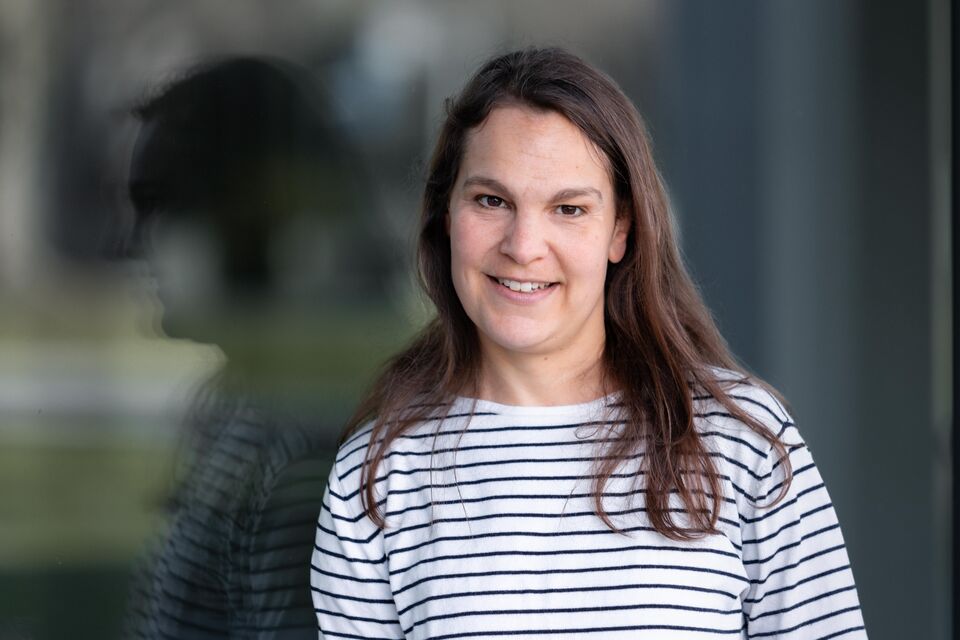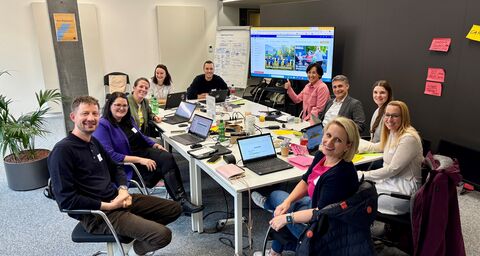
As a data scientist at AXA
Behind the scenes at an insurance company, nothing happens without statistics. The same also applies at AXA. Data scientist Nadine Golinelli explains what fascinates her about her job and what skills she needs to do it.
Nadine, what does your job as a data scientist entail?
We deal analytically with issues from AXA's business and use data to help highlight correlations. The conclusions drawn from this approach enable us to optimize processes.
What skills do you need for this?
Certainly analytical thinking and a solution-oriented way of working. And we question every idea critically to achieve the best result together as a team.
How does someone actually become a data scientist?
In many different ways! My colleagues have very varied fields of study: engineering, statistics, biomechanics, business IT. I myself studied Political Sciences. Even when I was studying for my Bachelor's, I knew that I wanted to focus on quantitative methods. This specialization for my Master's gave me the necessary skills to follow the path that I need here at AXA. My job enables me to apply and expand my knowledge.
"We question every idea critically to achieve the best result together as a team."
Quantitative methods and statistics - doesn't that sound rather dry?
Absolutely not! I thought it would be great to apply this way of thinking and working. We always try to continue developing our use cases by using new data sources and model approaches. The data-based use cases that the insurance world has to offer are also very diverse and interesting. It's a good feeling to know that we're facilitating solutions for the future with our work.
What is a use case?
An analytics use case is a specific case where data and data science techniques are used to solve a real business problem.
What solutions could that be?
In specific terms, we use methods to improve fraud or recourse recognition, for example. If we can continually improve the quality here, it not only helps AXA but all our customers. It's also great that my job consistently helps discover new application fields where data science can create added value. For example, the data-driven recognition of total losses or the automated checking of the definition of the term "accident".
How is Claims Analytics structured?
Our team consists of quants and engineers. The quants create business and data analyses, statistical models and evaluations. The job of engineers is to deal with data connection and processing and to build stable and efficient foundations for a data science project. But the crossovers are fluid.
"We place great emphasis on continuing to hone our skills and learning from one another."
What's your team's recipe for success?
Three things come to mind:
- We place great emphasis on continuing to hone our skills and learning from one another. Whether new modeling approaches, new tools from our cloud platform or best practices in the programming of our analytical applications, we regularly consult with one another, bringing everyone up to date on the latest developments.
- We bring different perspectives to the table thanks to varied backgrounds and technical skills. Before we implement a use case, we critically analyze it until we're satisfied with it. We're always trying to improve the existing use cases.
- We don't just see our role as "implementers" of business requirements, as we are proactively involved in discussions and decisions when it concerns technical improvement. To do this, you need to take individual responsibility, be able to compromise and also be a bit persistent.
From your perspective as an employee, what do you like about AXA?
I like the positive and open communication culture as well as the constant exploration of new solutions and ideas. We never stand still and are always improving. As an all-line insurance company, AXA offers a very broad range of options for analytical services. To do so, it's important for us to be observant and also keep up to date with developments in other areas so that we can apply synergies and learn from others. Looking further afield is very refreshing and inspiring. I also very much appreciate how flexibly we work together. If I know that I have to work on a task in a very focused and independent way, I work from home. If we're brainstorming about a particular issue, we work together in the office. That way, we are very efficient and achieve the desired outcome quicker.






